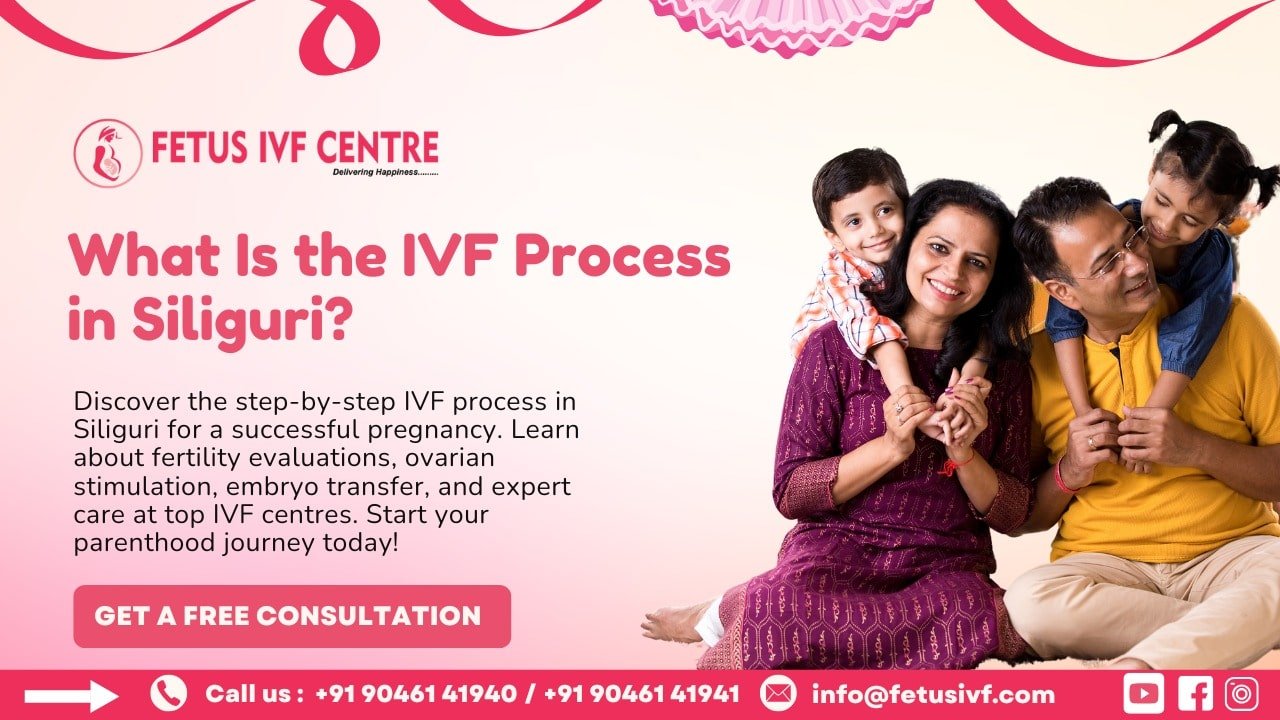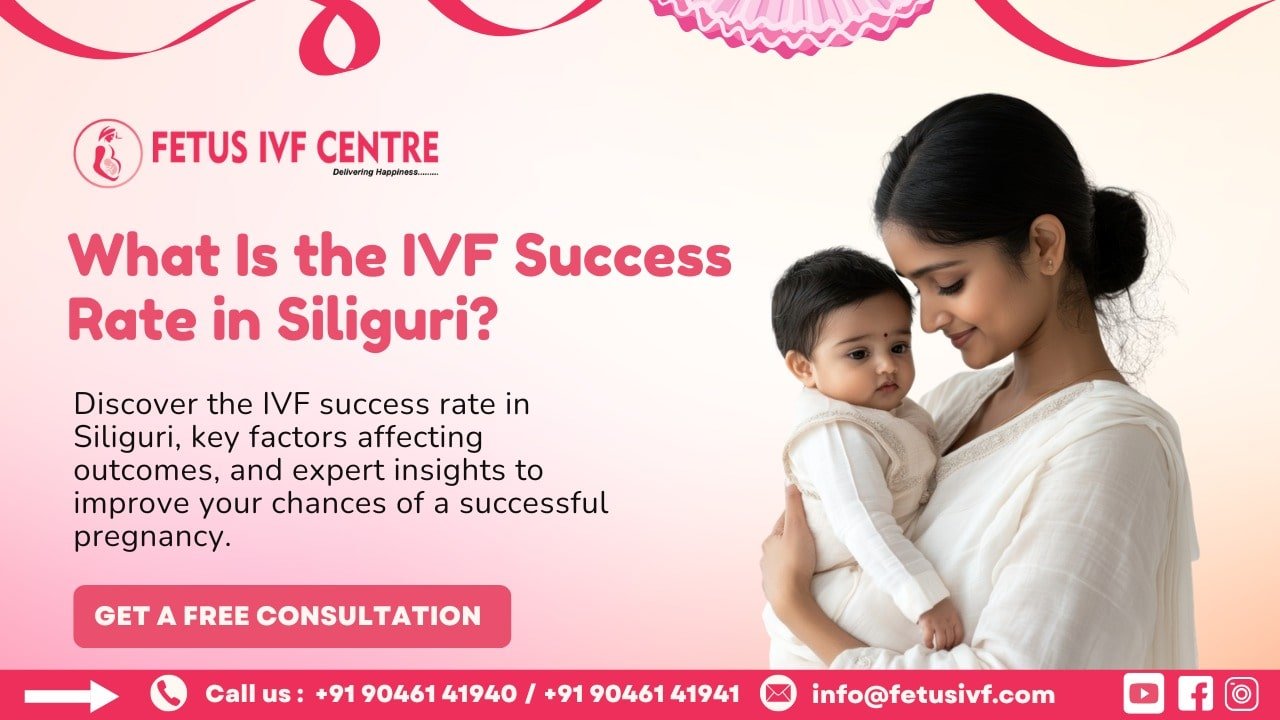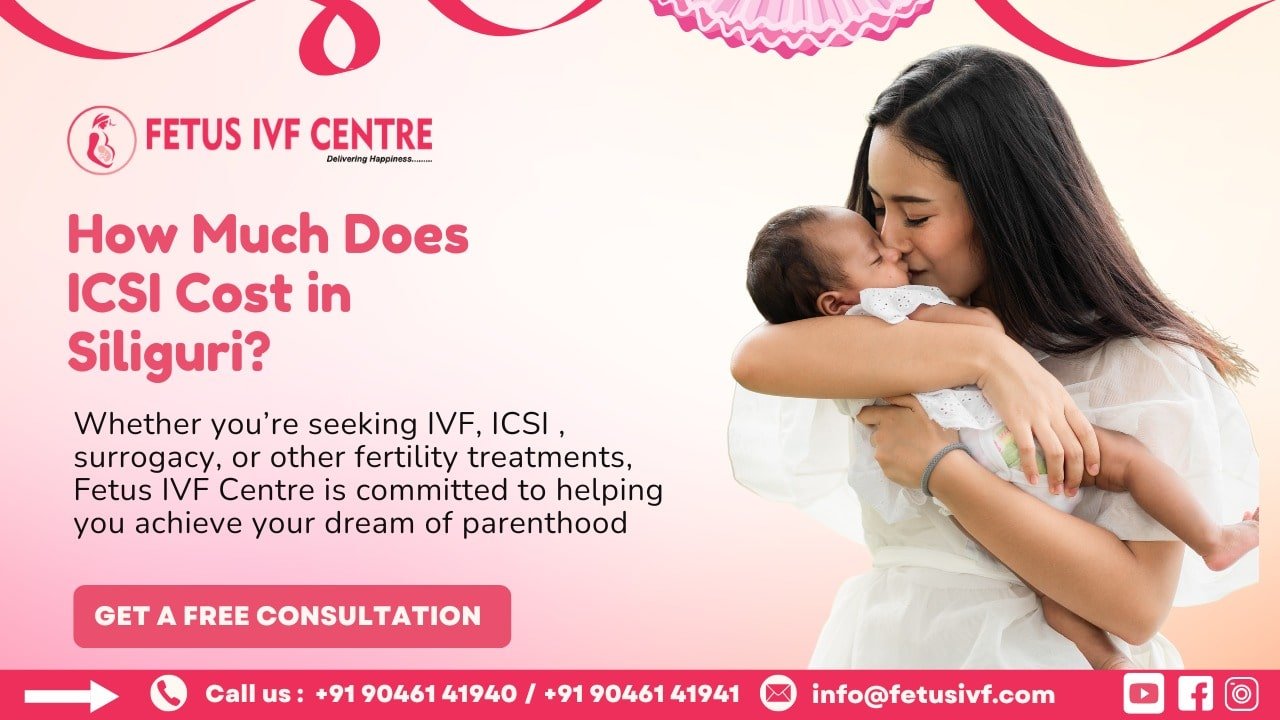No products in the cart.
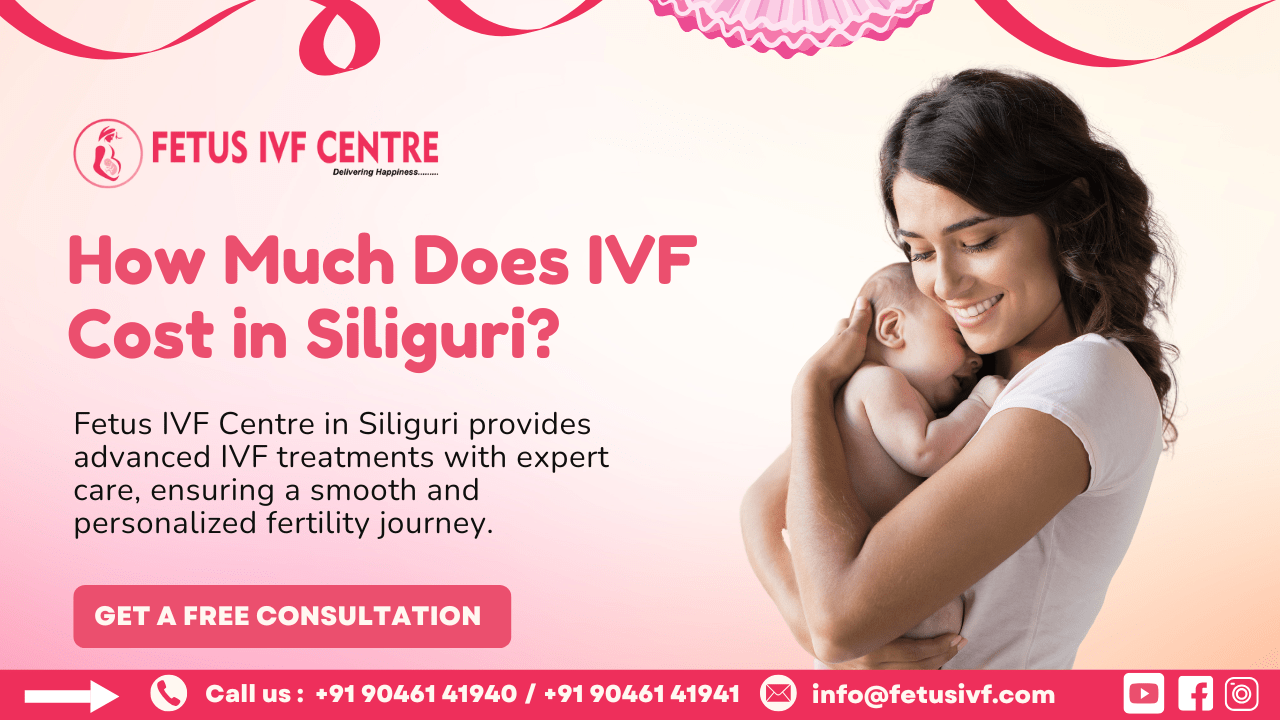
IVF treatment is the cure for infertility that can bring smiles and delight to numerous couples struggling with infertility. IVF treatment is widespread around the globe. This treatment has made infertile couples’ long-awaited parenthood come true. With improvement & advancement in the medical sector, an expensive or complicated procedure which as IVF has also become the most affordable and easily available treatment.
Infertility treatment that can bring smiles and happiness in the lives of infertile couples must be something that most couples can afford. Under the supervision of Dr. Hafizur Rahman and his great medical team, individuals can get the most pocket-friendly IVF cost in Siliguri so that it can reach every individual facing infertility and can fulfil their dream of becoming parents.
The procedure of IVF treatment is a blessing and opportunity for many couples who are not able to conceive a child. It is the best treatment for couples facing infertility for more than 1 year. IVF (in vitro fertilization) treats issues like damaged fallopian tubes, male infertility, female infertility, low sperm count, genetic disease, endometriosis, etc. Experienced doctors can diagnose and proceed with the whole procedure of IVF.

IVF procedure in Siliguri at Fetus IVF Centre
At Fetus IVF Centre, the process of IVF includes several steps that are briefly mentioned below:
IVF procedure in Siliguri starts with a consultation with an IVF specialist. The infertile couple’s previous medical condition, cause of infertility, suitable treatment to cure infertility, cost and success rate of the treatment will be discussed with a doctor.
Then, multiple hormonal injections are provided to the female partner to stimulate the ovaries to produce multiple eggs.
Once eggs are matured and developed then it is retrieved with the help of a catheter.
On the day of egg retrieval, semen is collected from the male partner and it is prepared by washing the semen.
In the next step, eggs and sperm are combined in the laboratory dish to create an embryo.
The embryo is implanted into the uterus of the woman.
12 days later, the pregnancy is checked with the help of a blood test. If the pregnancy is confirmed then you can welcome the child after 9 months.
However, if the pregnancy result is negative then another attempt is taken to achieve the success of IVF.
Who is eligible for IVF at Fetus IVF?
The eligibility criteria for IVF treatment at Fetus IVF involves the following:
- Woman with damaged or blocked fallopian tube.
- Individuals with the issue of endometriosis.
- Individuals with male infertility such as low sperm count, abnormal sperm shape, etc.
- Individuals with poor-quality eggs.
- Individual with ovulatory dysfunction.
- Individuals with PCOS.
Fertility affordable packages are available at Fetus IVF Centre Siliguri
At Fetus IVF Centre Siliguri, IVF is available at low rates and under the budget for every individual facing the issue of infertility. Let’s explore the IVF package cost:
How much does IVF cost in Siliguri ?

The cost of IVF in Siliguri varies on a variety of elements that can include the seriousness of the infertility condition, age of the couple (especially woman), number of IVF attempts, IVF specialist charges, success rate charges, several tests to diagnose or treat infertility charges, donors charges (if required), addition infertility charges like IUI, ICSI, PGD (if required), centre’s location can increase the travelling expense (for some individuals), consultation charges, etc. so the IVF cost in Siliguri is up to 1.7 lakh.
IVF cost at Fetus IVF Centre Siliguri
The cost of IVF at Fetus IVF Centre Siliguri is created by combining many factors such as IVF specialist cost, Follow-up visit charges, semen preparation charges, semen analysis charges, semen freezing charges (if required), pregnancy test charges, IVF package charges including medication, donor charges (if required), frozen embryo transfer charges (if required), etc. so the total IVF cost at Fetus IVF Centre Siliguri falls between 1.5 to 1.7 lakh.
With the help of the table, you will be able to understand the IVF cost in Siliguri at Fetus IVF Centre:
| IVF package in Siliguri | IVF cost at Fetus IVF Centre |
| IVF cost in Siliguri (self-including medicine, as per market rate) | 1.5 to 1.7 lakh |
| IVF with ICSI cost in Siliguri (including medicine) | Up to 1.8 lakh |
| IVF with oocyte donation cost in Siliguri (including donor) medicine extra | Up to 2.1 lakh |
| IVF with embryo donation cost in Siliguri (including medicine) | Up to 1.5 lakh |
| IVF with embryo donation cost in Siliguri (including pre-investigation to transfer) | Up to 1.7 lakh |
| Embryo freezing cost in Siliguri for 6 months | Up to 30k |
| Frozen embryo transfer cost in Siliguri | Up to 60k |
The following is the table of expenses involved in the procedure of IVF packages at Fetus IVF Centre Siliguri:
| IVF procedure expense in Siliguri | IVF procedure cost in Siliguri (INR) |
| Registration cost in Siliguri | ₹ 200 |
| Consultation from IVF specialist | ₹ 800 |
| Consultation from resident doctor | ₹ 500 |
| Consultation from counsellor | ₹ 200 |
| General follow-up visit cost in Siliguri | ₹ 500 |
| Pregnancy follow-up visit cost in Siliguri | ₹ 500 |
| Consultation from andrologist | ₹ 800 |
| Semen preparation cost in Siliguri-twin wash, double density(local media) | ₹ 1000 to 1500 |
| Semen preparation cost in Siliguri-twin wash, double density (vitrolite/sgae) | ₹ 2000 to 2800 |
| IUI-H Package cost in Siliguri | ₹ 7000 |
| IUI-D | ₹ 9000 |
| Semen analysis basic | ₹ 500 |
| Semen freezing for six month | ₹ 10000 |
| PESA cost in Siliguri | ₹ 10000 |
| TESA cost in Siliguri | ₹ 10000 |
| Baseline scan | ₹ 600 |
| Follicular scan-IUI (single & package) | ₹ 500 to 2000 |
| Follicular scan-IVF (single & package) | ₹ 600 to 2500 |
| Detailed scan cost in Siliguri | ₹ 4000 |
| Pregnancy scan cost in Siliguri | ₹ 1500 |
| Abdominal scan cost in Siliguri | ₹ 1000 to 2500 |
Elements affecting the cost of IVF in Siliguri
As you know IVF cost can be affected by several factors including the location, success rate, medication, type of IVF package, the seriousness of the condition, donors, egg freezing, embryo freezing, IVF specialist charges, number of IVF attempts, etc. However, the following are the main factors that can influence the IVF cost in Siliguri:
Age of the patient: IVF treatment in elderly patients requires more IVF attempts, the quality of eggs decreases, the need for advanced techniques, and requires a high dosage of medication. Hence, increasing the cost of IVF in siliguri. On the other hand, if the IVF treatment is performed in younger individuals then it prevents these expenses.
Ovarian reserve: Individuals with a low ovarian reserve may require extra therapies, medication and procedures. Low ovarian reserve can extract a few eggs from each cycle of IVF. Hence, requires more cycles and increases the expense.
Location of the centre: If the fertility centre is located in bigger cities then it can reduce the cost as bigger cities charge more as compared to smaller cities. The smaller cities may have low prices for IVF treatment.
Complexity of infertility: If the infertility case of the individual is serious or complex then it can require additional procedures and drugs. Therefore, adding to the cost of IVF in Siliguri.
Additional procedure: this includes the donor, it can be an egg or sperm donor. This step can include embryo freezing and genetic testing that can add up to the cost of IVF in Siliguri.
What is the success rate of IVF at Fetus IVF Centre Siliguri?
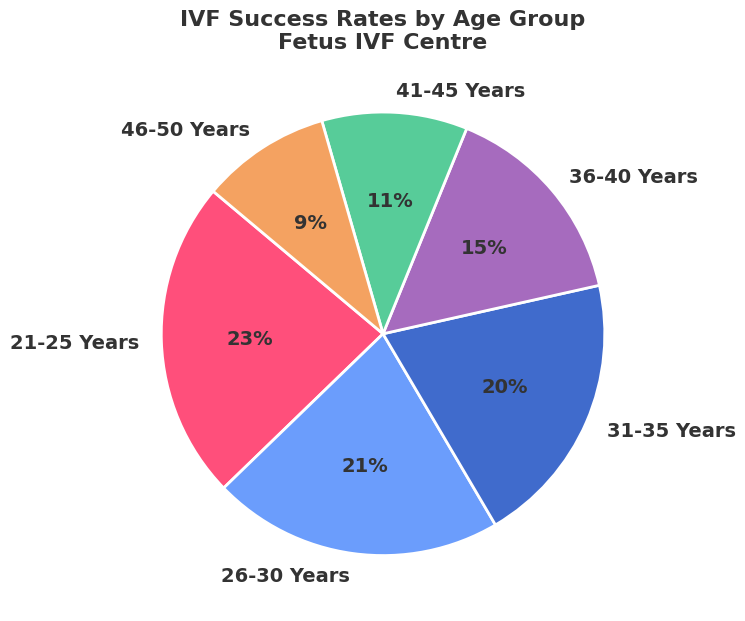
The success rate of IVF in Siliguri at Fetus IVF Centre ranges from 80 to 99%. This range of success rate can increase or decrease based on several factors such as the age of the individual, number of IVF attempts, use of reproductive technology, expertise of doctors and skills of the surgeon. Additionally, patient centric approach also delivers high success rates. With Fetus IVF, a high success rate is on your side.
As we come with real success records. Our successful treatment work data includes the 47143+ success cases of treating infertility and supporting families to achieve parenthood. We deliver 100% client satisfaction through our care & support. We handled the 32k cases of IVF and delivered the little ones through artificial insemination. So today get your infertility solution with just one call or message.
Who are the top IVF doctors in Siliguri at the Fetus IVF Centre?
Choosing the best IVF doctor in Siliguri is also a critical activity that can increase the success of the IVF procedure. Fetus IVF has a highly experienced, trained and skilled team of doctors, each doctor at our centre is qualified as the number one IVF specialist. Our doctors have a great understanding of infertility solutions and IVF. Hence, can deliver the suitable treatment as per the case of the patient. The expertise at Fetus IVF includes IVF specialists, gynaecologists, fertility practitioners, embryologists, etc to help couples to build their families and experience the joy of being parents. The following are our doctors:
- Dr. Hafizur Rahman (Obstetrician and Gynaecologist, Infertility Specialist, Cosmetic Gynaecologist at Siliguri)
- Dr. Sindhu Bala (Infertility Specialist)
- Dr. Ruchi Chettri (Obstetrician-gynecologist)
- Dr. Nabarun Das (Gynaecologist, Laparoscopy Gyne Surgeon, IVF Specialist)
Why trust Fetus IVF Centre?
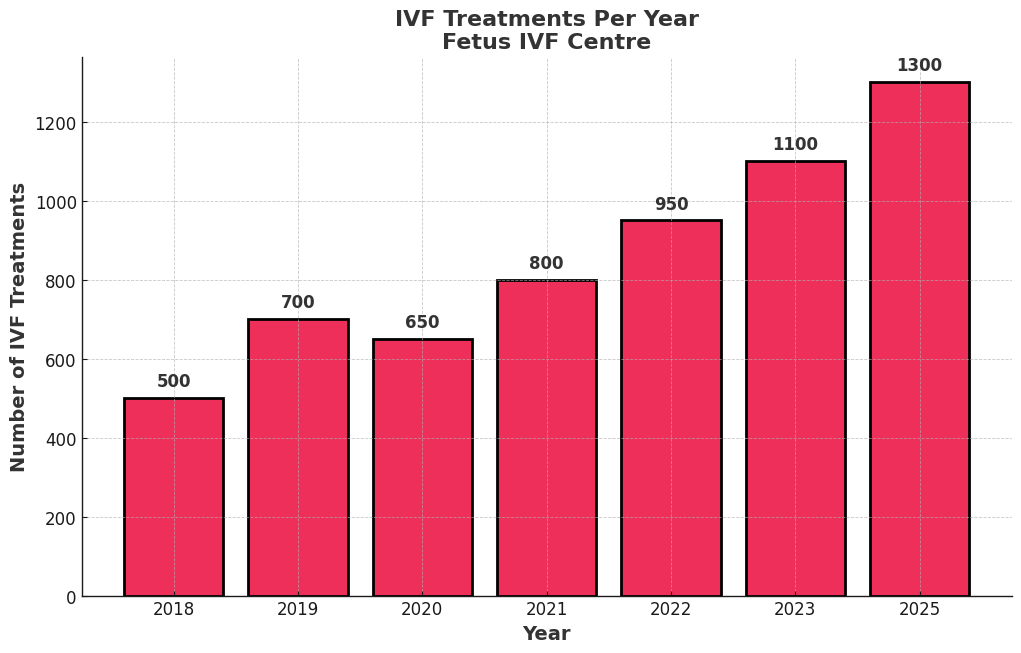
When it comes to resolving the condition of infertility, trusting Fetus IVF Centre Siliguri could be one of the best choices. Our fertility providing centre helps you to grow your family with the help of science that combines with love and care, unlocking your dream of becoming a mom and dad. Our centre understands the problem of infertility that’s why always ready to take a stand for infertile individuals.
Each infertile couple is important to us, we acknowledge their condition and come up with fruitful solutions to make the dream of parenthood a reality. We have a dedicated and hardworking team of fertility practitioners that includes IVF specialists, gynaecologists, embryologists, obstetricians and nurses or other staff. Our team fully support you on the road to fertility.
There are a number of factors that define why you should use the best IVF centre in Siliguri which is the Fetus IVF Centre. The reasons include the variety of infertility solutions, expert guidance and sky-high success rates. Our services include IVF, IUI, Frozen embryo transfer, ovum donation, semen donation, laparoscopy services, blastocyst culture, ICSI, PGD, male infertility, etc.
Last, but the most essential thing, our infertility solutions are available in Siliguri at a pocket-friendly budget. It’s because we want our services available to everyone. So don’t take too much time with your infertility, visit us or contact us via info@fetusivf.com or 9046141940 and cure your infertility in minimum time with the right centre and doctors.
Final Lines
IVF cost in Siliguri at Fetus IVF delivers happiness to numerous couples facing the problem of infertility. Our IVF centre is one of the most recognised and trustworthy centre in the whole Siliguri. We come with real data of success and we can ensure the baby in the life of infertile couples. So if you are also the one having a hard time in conception then you can choose us. You just need to book a consultation by contacting us, we will offer you a free consultation and provide you with the best and most suitable solution as per your unique case and requirement.
FAQs (frequently asked questions)
Is IVF too expensive?
No, it is a myth that the procedure of IVF is too expensive. However, this is not true, the procedure of IVF is available in Siliguri at an affordable cost.
Does embryo transfer cause pain?
Before the step of embryo transfer in IVF treatment, anaesthesia is provided to a woman to make embryo transfer pain-free and reduce discomfort or irritation.
How many IVF cycles are needed?
Usually, the IVF procedure requires one cycle to achieve success but sometimes couples can’t get success on the first attempt so it takes 1 to 3 IVF attempts to get success of IVF treatment.
How to cure infertility?
To cure infertility, IVF (in vitro fertilization) is one of the best treatments that can cure female or male infertility. This treatment offers parenthood to infertile couples with the help of artificial insemination.
Which is the best IVF centre in Siliguri?
Fetus IVF Centre stand out as the best IVF centre in Siliguri. This centre comes with many beneficial points that can help couples to get rid of infertility. The benefits of taking IVF from Fetus IVF include the high success rates pocket-friendly IVF cost, support and guidance, the use of the latest technology and the care and comfort from expertise during the procedure of IVF.
Read Also:
- Surrogacy Cost in Siliguri 2025 – Affordable & Legal Options for Parenthood
- IUI Cost in Siliguri – Affordable & Effective IUI Treatment in 2025
- How much does PGD cost in Siliguri?
- HSG Test Cost in Siliguri 2025 – Affordable Prices & Best Clinics
- TESA Treatment Cost in Siliguri – Affordable & Effective Sperm Retrieval



